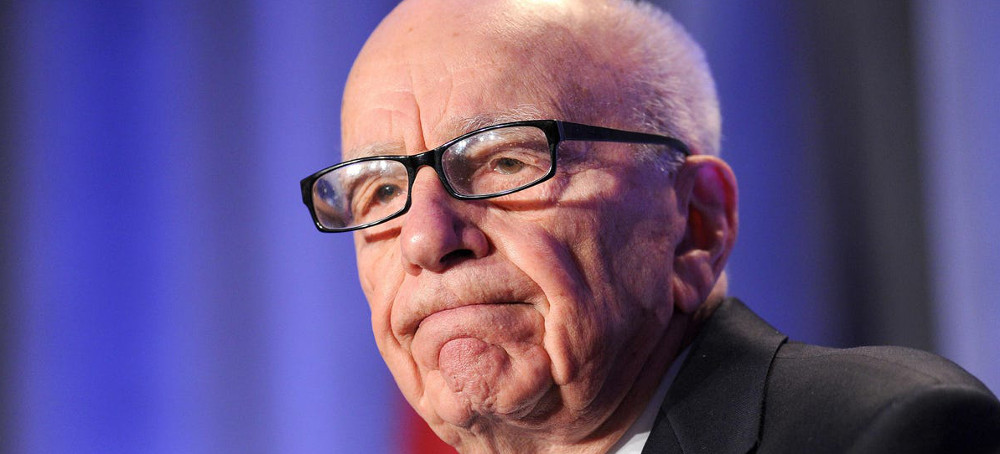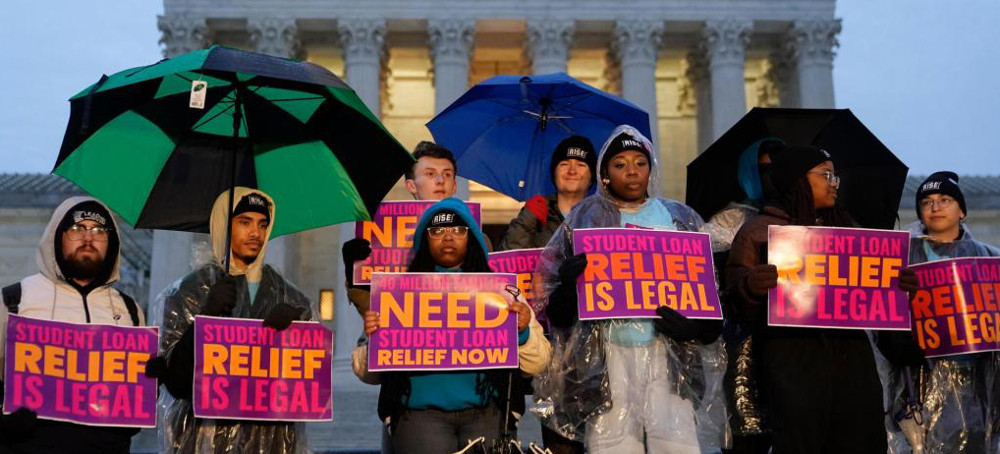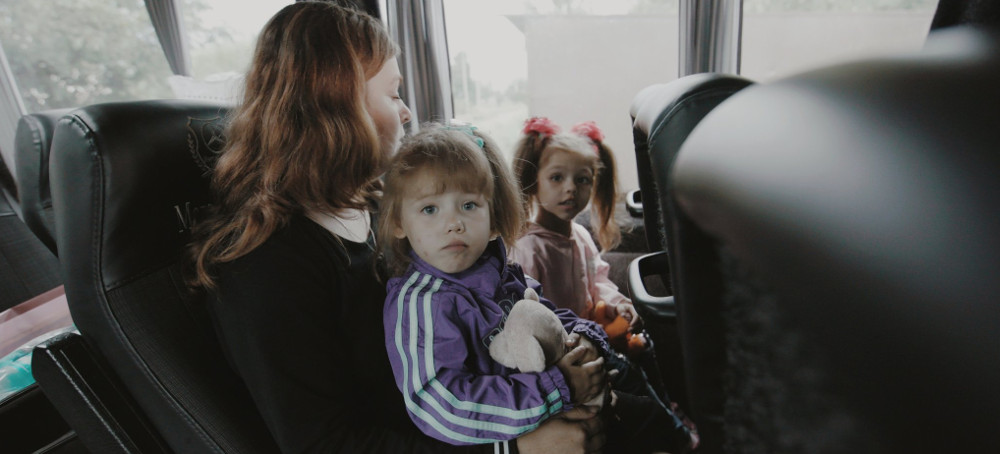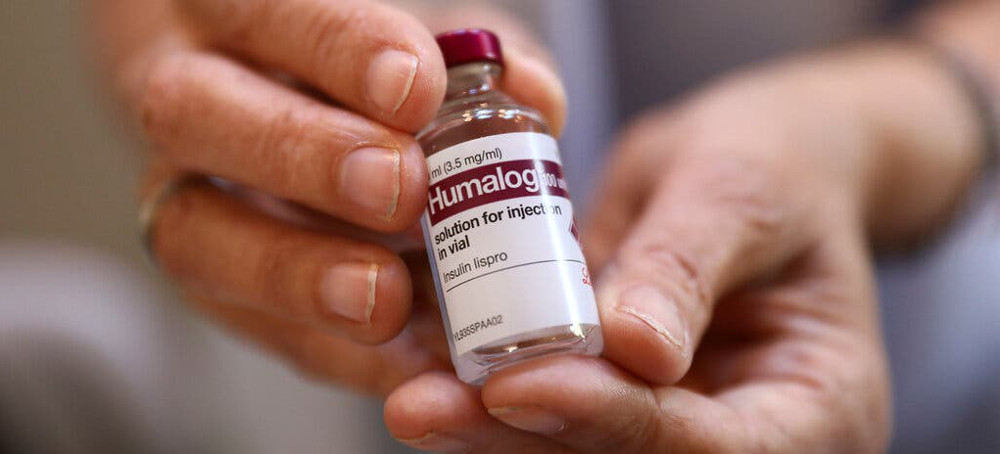
01 March 23
Live on the homepage now!
Reader Supported News

Andy Borowitz | Rupert Murdoch Calls Telling Truth Under Oath Worst Experience of His Life
Andy Borowitz, The New Yorker
Borowitz writes: "Rupert Murdoch said that telling the truth under oath while being deposed for a lawsuit against Fox News was 'by far the worst experience of my life.'"
The article below is satire. Andy Borowitz is an American comedian and New York Times-bestselling author who satirizes the news for his column, "The Borowitz Report."
Rupert Murdoch said that telling the truth under oath while being deposed for a lawsuit against Fox News was “by far the worst experience of my life.”
The media mogul disclosed that, when he was asked to raise his right hand and tell the truth, the whole truth, and nothing but the truth, “I thought I was going to be sick.”
“Sean Hannity and Tucker Carlson had warned me that telling the truth would be bad,” he said. “But I was unprepared for how harrowing it turned out to be.”
“The way it works is, people ask you questions, and you have to tell them what actually happened and not something you made up,” he explained. “It was beyond beastly.”
Reflecting on the traumatic experience, Murdoch said, “I know there are some people who tell the truth day in and day out, and I don’t know how they manage it. I’ve told the truth once, and I don’t intend to do it again.”
READ MORE
 Student debt relief advocates gather outside the Supreme Court on Capitol Hill in Washington, Monday, Feb. 27, 2023, ahead of arguments over President Joe Biden's student debt relief plan. (photo: Patrick Semansky/AP)
Student debt relief advocates gather outside the Supreme Court on Capitol Hill in Washington, Monday, Feb. 27, 2023, ahead of arguments over President Joe Biden's student debt relief plan. (photo: Patrick Semansky/AP)
Supreme Court Seems Ready to Reject Student Loan Forgiveness
Mark Sherman and Jessica Gresko, Associated Press
Excerpt: "Conservative justices holding the Supreme Court's majority seem ready to sink President Joe Biden's plan to wipe away or reduce student loans held by millions of Americans."
Conservative justices holding the Supreme Court’s majority seem ready to sink President Joe Biden’s plan to wipe away or reduce student loans held by millions of Americans.
In arguments lasting more than three hours Tuesday, Chief Justice John Roberts led his conservative colleagues in questioning the administration’s authority to broadly cancel federal student loans because of the COVID-19 emergency.
Loan payments that have been on hold since the start of the coronavirus pandemic three years ago are supposed to resume no later than this summer. Without the loan relief promised by the Biden plan, the administration’s top Supreme Court lawyer said, “delinquencies and defaults will surge.”
The plan has so far been blocked by Republican-appointed judges on lower courts. It did not appear to fare any better with the six justices appointed by Republican presidents.
Biden’s only hope for being allowed to move forward appeared to be the slim possibility, based on the arguments, that the court would find that Republican-led states and individuals challenging the plan lacked the legal right to sue.
That would allow the court to dismiss the lawsuits at a threshold stage, without ruling on the basic idea of the loan forgiveness program that appeared to trouble the justices on the court’s right side.
Roberts was among the justices who grilled Solicitor General Elizabeth Prelogar and suggested that the administration had exceeded its authority.
Three times, the chief justice said the program would cost a half-trillion dollars, pointing to its wide impact and hefty expense as reasons the administration should have gotten explicit approval from Congress. The program, which the administration says is grounded in a 2003 law that was enacted in response to the military conflicts in Iraq and Afghanistan. is estimated to cost $400 billion over 30 years.
“If you’re talking about this in the abstract, I think most casual observers would say if you’re going to give up that much ... money, if you’re going to affect the obligations of that many Americans on a subject that’s of great controversy, they would think that’s something for Congress to act on,” Roberts said.
Justice Brett Kavanaugh suggested he agreed, saying it “seems problematic” for the administration to use an “old law” to unilaterally implement a debt relief program that Congress had declined to adopt.
Neither justice seemed swayed by Prelogar’s explanation that the administration was citing the national emergency created by the pandemic as authority for the debt relief program under a law commonly known as the HEROES Act.
“Some of the biggest mistakes in the court’s history were deferring to assertions of executive emergency power,” Kavanaugh said. “Some of the finest moments in the court’s history were pushing back against presidential assertions of emergency power.”
At another point, though, Kavanaugh suggested the program might be on firmer legal ground than other pandemic-related programs that were ended by the court’s conservative majority, including an eviction moratorium and a requirement for vaccines or frequent testing in large workplaces.
Those earlier programs halted by the court were billed largely as public health measures intended to slow the spread of COVID-19. The loan forgiveness plan, by contrast, is aimed at countering the economic effects of the pandemic.
Prelogar and some of the liberal justices sought several times to turn the arguments back to the people who would benefit from the program. The administration says that 26 million people have applied to have up to $20,000 in federal student loans forgiven under the plan.
“The states ask this court to deny this vital relief to millions of Americans,” she said.
Justice Sonia Sotomayor said her fellow justices will be making a mistake if they take for themselves, instead of leaving it to education experts, “the right to decide how much aid to give” people who will struggle if the program is struck down.
“Their financial situation will be even worse because once you default, the hardship on you is exponentially greater. You can’t get credit. You’re going to pay higher prices for things,” Sotomayor said.
But Roberts pointed to evident favoritism.
He offered a hypothetical example of a person who passes up college to start a lawn service with borrowed money. “Nobody’s telling the person who is trying to set up the lawn service business that he doesn’t have to pay his loan,” Roberts said.
Republican-led states and lawmakers in Congress, as well as conservative legal interests, are lined up against the plan as a violation of Biden’s executive authority. Democratic-led states and liberal interest groups are backing the administration in urging the court to allow the plan to take effect.
The justices’ questions mirrored the partisan political divide over the issue, with conservatives arguing that non-college workers should not be penalized and liberals arguing for the break for the college educated.
Speaking on the eve of the arguments, Biden had said, “I’m confident the legal authority to carry that plan is there.”
The president, who once doubted his own authority to broadly cancel student debt, first announced the program in August. Legal challenges quickly followed.
The administration says the HEROES Act allows the secretary of education to waive or modify the terms of federal student loans in connection with a national emergency. The law was primarily intended to keep service members from being hurt financially while they fought in wars in Afghanistan and Iraq.
Nebraska and other states that sued say the 20 million borrowers who would have their entire loans erased would get a “windfall” leaving them better off than before the pandemic.
“This is the creation of a brand new program, far beyond what Congress intended,” Nebraska Solicitor General James Campbell said in court Tuesday.
The national emergency is expected to end May 11, but the administration says the economic consequences will persist, despite historically low unemployment and other signs of economic strength.
In addition to the debate over the authority to forgive student debt, the court is confronting whether the states and two individuals whose challenge also is before the justices have the legal right, or standing, to sue.
Parties generally have to show that they would suffer financial harm in order to have standing in cases such as this. A federal judge initially found that the states would not be harmed and dismissed their lawsuit before an appellate panel said the case could proceed.
Justice Amy Coney Barrett joined the three liberal justices in repeatedly questioning Nebraska’s Campbell on that issue. But it would take at least one other conservative vote to form a majority.
Of the two individuals who sued in Texas, one has student loans that are commercially held and the other is eligible for $10,000 in debt relief, not the $20,000 maximum. They would get nothing if they win their case.
Among those in the courtroom Tuesday was Kayla Smith, a recent graduate of the University of Georgia, who camped out near the court the night before in order to get a seat. Biden’s plan would lift a burden for her mother, who borrowed more than $20,000 in federal student loans to help Smith attend college.
“It just seems kind of messed up that college is the expectation, higher education is the expectation, but then at the same time, people’s lives are being ruined,” said Smith, 22, who lives in Atlanta.
The arguments are available on the AP YouTube channel or on the court’s website.
A decision is expected by late June.
READ MORE
 Children in Ukraine with whom the group Kidsave has worked ride a bus in 2022. (photo: Courtesy of Kidsave)
Children in Ukraine with whom the group Kidsave has worked ride a bus in 2022. (photo: Courtesy of Kidsave)
Ukrainian Children Orphaned by War 'Need a Tremendous Amount of Help'
Ramon Antonio Vargas, Guardian UK
Excerpt: "Since Russian troops invaded Ukraine a little more than a year ago, some in the US have shown their support for the encroached country by volunteering to fight for it while others have called on politicians to equip the defenders with munitions and weapons."
President of Los Angeles-based non-profit Kidsave says Americans need to be made aware that Ukrainian needs go beyond military aid
Since Russian troops invaded Ukraine a little more than a year ago, some in the US have shown their support for the encroached country by volunteering to fight for it while others have called on politicians to equip the defenders with munitions and weapons.
Randi Thompson is calling on Americans to ponder another way: aiding efforts to place Ukrainian children orphaned by the Russian invasion in new families within their country.
Thompson is the president, chief executive officer and co-founder of the Los Angeles-based non-profit Kidsave, which is dedicated to connecting older children in institutionalized care around the world with families to adopt them. The group had worked in Ukraine for six years before the invasion by Russian forces on 24 February 2022 made a bad situation worse.
Officials estimate there were more than 105,000 children across 700 orphanages, boarding schools and other institutions in Ukraine when the war there started – that’s more than 1% of the nation’s underage population and Europe’s highest rate of youth institutionalization.
Numbers since then are harder to track as children have been evacuated and moved out of Ukraine’s institutionalized care for safety reasons. But there’s reason to think things have gotten only harder for Ukraine’s orphans.
At least 6,000 Ukrainian children have been forced into camps and facilities across Russia – without parental consent – by the invaders, according to a report from the Conflict Observatory, which is supported by the US state department. And Ukraine’s prosecutor general, Andriy Kostin, has said his teams have documented more than 14,000 instances of Ukrainian children being forced into adoption in Russia since the invasion, which shows no signs of ending anytime soon.
“There’s no question that the fighting is going to continue,” Thompson said. “The suffering is going to continue.”
According to Thompson, Ukraine has made it a clear priority to keep in the country any of its children who are in need of adoption as opposed to sending them abroad. And Kidsave has done what it can, investing a million dollars from its coffers into its operations in Ukraine, according to Thompson.
The group first used cargo vans to move to safety nearly 120 children that the organization had placed with families.
It then bought 17 more vehicles for its fleet, including 22-passenger sprinters, buses with capacities of 50 to 62 passengers, and cargo trucks, including an 18-wheeler with refrigeration.
That fleet has crossed checkpoints, gone into towns ensnared by conflict and helped evacuate more than 30,000 people while also assisting in the delivery of more than 1,000 tons of humanitarian aid, with Kidsave staffers and their charges sometimes having to navigate behind the invaders’ lines using satellite phones, night vision goggles, protective gear and helmets, Thompson said.
Among those whom Kidsave evacuated were three children – ages three, four and six – whose mother died from an illness after she had left her physically abusive husband and took them with her. They had moved in with a loving, attentive foster family whose home ended up surrounded by shelling and bombing.
The foster parents were unable to leave, but they made arrangements to move the children out of the conflict zone and, through Kidsave, place them with another family in Ukraine, motivated – as Thompson put it – by a nationwide sense of, “I’m going to be my brother’s keeper now.”
In a statement provided to the Guardian, Ukraine-based Kidsave staff member Olena Shulha described how the children told stories, drew pictures, played and watched cartoons until they fell fast asleep during a two-day, nonstop trip of nearly 1,100 miles that was not devoid of explosions and shelling.
Shulha said the children were happy to brave the trek after being told there was “a new life waiting for them, full of interesting moments, love and care, new friends and discoveries”.
“We explained to them that there was a new family who would take care of them in a safe place,” Shulha wrote. “We pray that their little hearts will never again experience separations, wars and disappointments.”
While many of her compatriots may be unable to help prolong such work by physically getting on the ground in Ukraine, Thompson said a new campaign offers them the chance to get involved from a distance.
The Flat Sasha project centers on a cartoon depiction of a 12-year-old child who has been displaced from a Ukrainian orphanage by the Russian invasion. It can be printed out, decorated and displayed in cars, schools, offices or social media, and anyone with a smartphone can scan a QR code on the caricature that links to information about children in institutionalized care in war-torn Ukraine.
The QR link does offer the opportunity to donate money that would provide food, medicine, shelter, fuel and counseling services to the children with whom Kidsave works. The donations would also aid the construction of a center in Ukraine aimed at providing mentorship, therapy and other emotional support services to children trying to grow up in conflict.
But, if nothing else, just becoming aware – and spreading the awareness – that Ukrainian needs go beyond military aid is vital as the war slogs through its second year, according to Thompson.
“We want Americans to [realize] these children still need a tremendous amount of help,” Thompson said.
READ MORE
 Lauren Miller, of Dallas, Texas, says that her state's abortion laws added to the stress and turmoil her family faced after one of her twins was diagnosed with a fatal condition in utero. (photo: Nitashia Johnson/NPR)
Lauren Miller, of Dallas, Texas, says that her state's abortion laws added to the stress and turmoil her family faced after one of her twins was diagnosed with a fatal condition in utero. (photo: Nitashia Johnson/NPR)
3 Abortion Bans in Texas Leave Doctors 'Talking in Code' to Pregnant Patients
Selena Simmons-Duffin, NPR
Simmons-Duffin writes: "This past fall, when Lauren Miller of Dallas was 13-weeks pregnant with twins, she got horrible news. One of the twins had trisomy 18, a genetic abnormality that causes about 90% of fetuses to die before birth. The other twin was healthy."
This past fall, when Lauren Miller of Dallas was 13-weeks pregnant with twins, she got horrible news. One of the twins had trisomy 18, a genetic abnormality that causes about 90% of fetuses to die before birth. The other twin was healthy.
She learned from a genetic counselor that continuing to carry both fetuses could put the healthy one at risk. She saw a doctor who specializes in high risk pregnancies who told her: "You can't do anything in Texas and I can't tell you anything further in Texas, but you need to get out of state."
That's exactly what she did. Miller traveled to Colorado and, at 15-weeks pregnant, she had a "selective reduction" procedure to help ensure her pregnancy with her healthy twin could continue.
When she returned to Dallas and continued her prenatal care, she found herself navigating silence around abortion. She wondered, if the ultrasound technician knew she'd traveled out of state for an abortion, could she get reported? "You don't know where anybody stands, so it feels like we're all kind of talking in code," Miller says.
What Miller did does not violate current abortion laws in Texas, legal experts say. But the fear among doctors and patients in the new legal landscape in Texas is extreme, to the point where — as Miller found — some doctors won't say the word "abortion" in the exam room.
The first amendment of the constitution protects free speech, explains Elizabeth Sepper, professor of law at University of Texas at Austin. "Physicians have independent speech rights, to speak to their patients openly," she says. "Physicians should not be scared to say the 'a-word.'"
Nevertheless, that seems to be what's happening. Many doctors in Texas who treat pregnant patients are extremely scared, especially of language in one of the state's abortion bans that allows people to take civil action against anyone who "aids or abets" abortion.
Three overlapping abortion bans
"It's just absolutely crippling," says Lauren Miller's OB-GYN, who asked that NPR not use her name because she is not authorized by her employer to speak with the media.
Many doctors are unwilling to speak publicly about this issue. A half dozen Texas OB-GYNs NPR contacted for this story didn't respond or declined to comment.
"People are scared to talk," says Dr. Andrea Palmer, an OB-GYN in Fort Worth. If a doctor acknowledges publicly that they counsel their patients on abortion, she adds, they might worry they would be set up by someone posing as a patient or family member looking to bait them into talking about abortion and then sue.
There are, in fact, three laws against abortion in Texas, explains Sepper. "We have the trigger ban that was recently enacted and comes along with up to life imprisonment for violation," she says. "We have possibly the pre-Roe ban, which Texas officials are arguing is still in effect, and applies both to performance of an abortion and to providing the instrumentality or the means of an abortion. And then we have SB8 as a civil backstop, which prohibits aiding and abetting abortions."
'The weather's really nice in New Mexico'
There is an exception in Texas law that allows abortion when a woman's life or a "major bodily function" is in imminent danger. But it's not uncommon for there to be pregnancy complications — like Lauren Miller's — where many doctors would consider it to be the standard of care to offer abortion as an option. Those are the kind of circumstances where physicians feel like they can't be fully truthful about a patient's options without risking a lawsuit.
"I have colleagues who say cryptic things like, 'The weather's really nice in New Mexico right now. You should go check it out.' Or, 'I've heard traveling to Colorado is really nice this time of year,' " says Miller's OB-GYN. Patients have to be well-educated enough to pick up on these hints, do their own research, and figure out what to do next. They also have to have the means to travel or find funding to do so, if they want to pursue abortion.
The doctor herself is careful not to put things in writing, and even having frank conversations with her patients about abortion options out-of-state — whether the conversations are in-person or over the phone — makes her feel vulnerable. "I am putting myself out there," she says. "If a patient's grandmother and or partner or sister finds out that I've talked to them about an abortion, and that's something that really, really upsets them, all they have to do is find a lawyer and all of a sudden I'm 'aiding and abetting' someone into an abortion."
Still, these laws are not as sweeping as some seem to think, law professor Sepper says, and none should apply in Miller's case.
"First, all of them exempt the pregnant person," Sepper explains. "Second, none of them apply outside the borders of Texas, so abortions performed in Colorado or California are not covered."
Amy O'Donnell of Texas Alliance for Life, an anti-abortion rights group, concurs with Sepper's interpretation of the law. "Our Texas Alliance for Life attorneys believe there is a constitutional right to interstate travel," she says. "They believe that Texas will not be able to ban interstate travel for abortion, just as we cannot ban individuals from traveling to another state to participate in casino gambling, which is not legal in Texas."
Vague laws, silenced doctors
Still, whether doctors can openly counsel their patients without violating SB8 is a bit more complicated, and hasn't been tested in court. "The law's vague – it's really poorly written, probably on purpose," says Palmer, adding, "Nobody wants to be defendant number one on this."
Sepper argues many doctors and hospital systems are overreading the Texas abortion bans, and should consider the ethical and professional obligations to give patients complete information about their diagnoses and options. "Providing information, even providing referrals, is not within the terms of SB8 or the criminal bans," she says. When doctors and hospitals won't discuss abortion because they're afraid of lawsuits, she says, "I think it's a real disservice to patients."
The reticence on the part of some doctors can have devastating consequences. Dr. Eve Espey is chair of the OB-GYN department at the University of New Mexico, where more and more Texas patients come for abortions they can't get at home.
"Those restrictive laws are increasing complex abortion care because people come later, and abortions later in gestation are more complicated," Espey explains. One of the drivers of those delays is people having no idea that there are options out-of-state, she adds.
She recalls one Texas patient whose fetus had acrania, where the fetus has no skull. It's a fatal condition for the fetus. "That was a doctor who didn't tell her, 'Go get care out-of-state,'" says Espey. "She was an immigrant. It took her six weeks to figure out she could travel to New Mexico for an abortion and get the logistics and finances together to be able to go."
The patient ended up hemorrhaging and needing a hysterectomy. "This is a patient who — if she had been able to have that pregnancy termination at 11 or 12 weeks — very likely would not have lost her uterus the way she did when she was 16 to 17 weeks," says Espey.
'Why do the testing?'
Espey believes that there are many doctors in Texas who would like to provide more information to patients but are unsure if they can.
"The Texas abortion laws were designed to sow confusion and fear, and they're working," Espey adds. When doctors hear that abortion is illegal and anyone can sue them, they err on the side of caution, rather than practice up to the edge of what's legally allowed. "People want to stay out of trouble, and physicians are no exception to that."
One strange aspect of all this, Espey notes, is that pregnant women in Texas still have access to many genetic testing options, available as early as 10 weeks of pregnancy, and very little ability to act on that information.
"Why do the testing?" she asks. "The urgency of early diagnosis is to provide early abortion care."
Palmer, the doctor in Fort Worth, agrees. "We are asking questions that we can only provide limited resources for the answer," she says. "And it is really frustrating as a physician to not be able to provide full care for patients."
Lawmakers seem unlikely to change — or clarify — abortion bans
NPR reached out to five Republican Texas lawmakers to ask about Texas's abortion laws and to get comment on Lauren Miller's story, but none responded to our request. Attorney General Ken Paxton's office also did not respond to NPR's request to explain how the state plans to enforce Texas's abortion laws, especially in relation to doctors and counseling.
Before the elections last fall, a few Republican Texas lawmakers signaled there may be changes to the state's abortion laws coming, specifically, the addition of an exception for abortions of pregnancies that result from rape or incest. But Brendan Steinhauser, a Republican political strategist based in Austin, says his impression is that lawmakers aren't eager to take up new abortion legislation, either to create more exceptions or more restrictions.
"I don't hear a lot about it in the capital," Steinhauser says. "I think that you're probably not going to see a lot of change in the session this year. "
He sees very little political appetite for bringing abortion up again among Republicans lawmakers in the state, because Texas Republicans did well in the last election even after Roe v. Wade was overturned and the state's abortion restrictions took effect. "I think Republican legislators realize, 'We passed these bills into law, we weren't punished at the ballot box,'" he says. "So what is the incentive to do anything different?"
O'Donnell of Texas Alliance for Life, one of the the groups in the state that lobbies for abortion restrictions, says her group is not currently advocating for more restrictions. "What we're working for in this session is maintaining our pro-life gains," she says, adding that the medical emergency exception currently in the law is "adequate." Asked about doctors scared to counsel their patients about abortion when their patients are faced with complications that are not immediately life-threatening, she responded: "As far as doctors advocating for abortion, our goal is to make abortion not only illegal in our state, but unthinkable."
There are some lawmakers in the state who would like to go further. The Texas Freedom Caucus, a group of a dozen legislators, released a list of priorities last month that includes "Stop those aiding and abetting out-of-state abortions by enforcing Texas law." A spokesperson for the caucus did not respond to NPR's interview request.
Angry, and motivated to speak out
Lauren Miller, the Dallas patient who had to travel 800 miles for an abortion, says that if not for the state of Texas and its restrictions, her doctors could have done much more to help her.
"They would have just been able to give information freely, get it scheduled," she says. "It wouldn't become this whole agonizing process of just trying to get information of — what do we actually need? Where do we go?"
She's been processing her experience, in between caring for her 1-year-old and preparing for the arrival of her baby at the end of March. She's also civically engaged, she says. "I have no qualms, when something's going on, calling a member of Congress, writing an email, staying informed, [sending] the letter to council."
She's angry she had to leave home for an abortion. She wanted to have that care at home in Texas. And she refuses to stay quiet about it.
READ MORE
 Eli Lilly said it planned to reduce the list price of its most commonly used insulin, Humalog, by 70 percent. (photo: Simon Dawson/Reuters)
Eli Lilly said it planned to reduce the list price of its most commonly used insulin, Humalog, by 70 percent. (photo: Simon Dawson/Reuters)
Eli Lilly Cuts the Price of Insulin, Capping Drug at $35 Per Month Out-of-Pocket
Rebecca Robbins, The New York Times
Robbins writes: "The drugmaker Eli Lilly and Company said on Wednesday that it would significantly reduce the prices of several of its lifesaving insulin products that are used by diabetes patients and whose prices Lilly has repeatedly increased in the past."
The company said it would cap the monthly out-of-pocket cost of the diabetes products at $35.
The drugmaker Eli Lilly and Company said on Wednesday that it would significantly reduce the prices of several of its lifesaving insulin products that are used by diabetes patients and whose prices Lilly has repeatedly increased in the past.
Lilly also said it would cap at $35 a month what patients pay out of their own pockets for the company’s insulin.
The move marks at least a partial retreat for a company that has been a primary contributor to soaring prices for an injection that millions of Americans rely on to keep their blood sugar levels in check. It comes at a time of mounting political pressure on drug companies to rein in what lawmakers and other critics view as the industry’s pattern of abusive profiteering.
Over nearly three decades, for example, Lilly has raised the price on its most widely used insulin product, Humalog, by more than 1,000 percent.
The high costs for insulin made by Lilly and other drug companies — out-of-pocket payments for people on certain high-deductible insurance plans can exceed $1,000 a month, though many patients pay far less — have led many patients to ration their medicines or, in some cases, to stop taking them altogether.
In his State of the Union address last month, President Biden blasted drug companies for increasing the prices for insulin. “Big Pharma has been unfairly charging people hundreds of dollars, $400 to $500 a month, making record profits,” he said.
On Wednesday, Mr. Biden hailed Lilly’s move as “a big deal, and it’s time for other manufacturers to follow.”
Lilly’s moves, however, are limited. The lower list prices, which will take effect over the course of this year, apply only to the company’s older insulin products. And a large percentage of diabetes patients who need insulin take products made by two other major drug manufacturers, Sanofi and Novo Nordisk.
Stacie Dusetzina, a professor of health policy at Vanderbilt University School of Medicine, said Lilly’s changes would be helpful for diabetes patients who are uninsured or underinsured. But she noted that insurers already pay less than the sticker price for the insulin products because of a variety of discounts and rebates.
Still, she said, “I don’t think that these prices are quite as impressive as they look when you first see them.”
“It doesn’t necessarily mean that Lilly is taking a big financial hit to do this,” she added.
Lilly’s announcement “does not mean that the situation is fixed or everything is solved,” said Elizabeth Pfiester, who has diabetes and is the executive director of T1International, a group that has been pushing for a federal ceiling on insulin list prices.
More than 30 million Americans have diabetes, and more than seven million of them rely on insulin. Without insulin, patients can die or face serious health consequences including amputation and kidney failure.
Lilly’s price cuts follow years of mounting pressure not just from officials in Washington and state capitals but also from a well-organized community of patients who have called for insulin to be more affordable.
Lilly’s move to limit out-of-pocket costs expands on a change that went in to effect at the start of this year for patients on Medicare. Under last year’s Inflation Reduction Act, Congress imposed a $35 a month ceiling on insulin co-payments for Medicare patients.
Lilly said that it planned in the last three months of this year to reduce the list price of its most commonly used insulin, Humalog, by 70 percent.
A vial of Humalog — patients often go through several vials per month — has a list price of $275; Lilly plans to reduce that to $66. That will still be more than triple the list price when Humalog was introduced in 1996. (Lilly said it will also sharply reduce the list price of its generic version of Humalog, as well as another of its insulin products, Humulin.)
In April, Lilly plans to introduce a similar version of rival Sanofi’s insulin product Lantus. It said that would offer it at a 78 percent discount to Lantus’s list price.
Lilly said that one of its newer versions of Humalog, a prefilled insulin pen that has a list price of $530, would not be discounted. And the company said it would not cut the price of its long-acting insulin product, Basaglar, which was first approved in 2015.
Ms. Pfiester said her group is continuing to push for a federal price cap on insulin. Lilly’s announcement, she said, “is good news for some, but we need regulation to make sure that the companies can’t change their mind again and decide to raise the price.”
Insulin costs an estimated $10 per vial to manufacture.
When Frederick Banting helped invent the drug a century ago, he refused to put his name on the first patent application because he felt it would be at odds with the Hippocratic oath he had taken as a physician. The two scientists whose names were on that patent application, James Collip and Charles Best, transferred the patent to the University of Toronto for $1, in the hopes of making it as widely available and affordable as possible.
That has not happened. In recent years, the leading insulin manufacturers, including Lilly, have replaced older products with newer, costlier versions and steadily increased their prices.
READ MORE
 Election officials declared ruling party candidate Bola Tinubu the winner of Nigeria's presidential election early March 1, 2023, with the two leading opposition candidates already demanding a revote in Africa's most populous nation. (photo: Ben Curtis/AP)
Election officials declared ruling party candidate Bola Tinubu the winner of Nigeria's presidential election early March 1, 2023, with the two leading opposition candidates already demanding a revote in Africa's most populous nation. (photo: Ben Curtis/AP)
Winner Declared in Nigerian Election; Rivals Demand a Revote
Associated Press
Excerpt: "Africa's most populous nation saw complaints about how long it has taken to count the votes."
ALSO SEE: Exploring the Rigging Claims in Nigeria's Elections
Africa's most populous nation saw complaints about how long it has taken to count the votes.
Election officials declared ruling party candidate Bola Tinubu the winner of Nigeria’s presidential election early Wednesday, with the two leading opposition candidates already demanding a revote in Africa’s most populous nation.
The overnight announcement was likely to lead to a court challenge by his main opponents Atiku Abubakar and Peter Obi. Abubakar also finished second in the last vote in 2019, then appealed those results before his lawsuit ultimately was dismissed.
On Tuesday, the two leading opposition parties had demanded a revote, saying that delays in uploading election results had made room for irregularities. The ruling All Progressives Congress party urged the opposition to accept defeat and not cause trouble.
Tinubu received 8,794,726 votes, while Abubakar came in second with 6,984,520. Obi, the third place finisher, got 6,101,533 votes, according to the results announced live on television by the Independent National Electoral Commission.
The announcement came after 4 a.m., but celebrations already had started late Tuesday at the ruling party’s national secretariat where Tinubu’s supporters had gathered in anticipation of his victory.
“None of the others matches his record!” said Babafemi Akin as he chatted excitedly about the prospects of a Tinubu administration. “I am sure he will do well.”
The parties now have three weeks to appeal results, but an election can be invalidated only if it’s proven the national electoral body largely didn’t follow the law and acted in ways that could have changed the result.
The Supreme Court of Nigeria has never overturned a presidential election, though court challenges are common, including by outgoing President Muhammadu Buhari, who doggedly fought his past election losses for months in vain.
Observers have said Saturday’s election was mostly peaceful, though delays caused some voters to wait until the following day to cast their ballots. Many Nigerians had difficulties getting to their polling stations because of a currency redesign that resulted in a shortage of bank notes.
READ MORE
 Pirouz, meaning 'victorious' in Persian, had become a source of national pride since his birth last year at a wildlife refuge. (photo: Iranian Department of Environment/IRNA)
Pirouz, meaning 'victorious' in Persian, had become a source of national pride since his birth last year at a wildlife refuge. (photo: Iranian Department of Environment/IRNA)
Last of Iran's Endangered Asiatic Cheetah Cubs in Captivity Dies
Agence France-Presse
Excerpt: "The last survivor of three critically endangered Asiatic cheetah cubs born in captivity in Iran has died in hospital from kidney failure."
Authorities announce death of cub named Pirouz from kidney failure at veterinary hospital in Tehran
The last survivor of three critically endangered Asiatic cheetah cubs born in captivity in Iran has died in hospital from kidney failure.
Pirouz, who was admitted to the Central veterinary hospital due to kidney failure last Thursday, died after undergoing dialysis, the official IRNA news agency said.
“The loss of Pirouz and ineffectiveness of all the efforts made by the treatment team in the past few days to save the animal saddens me and all my colleagues, and we apologise to everyone that we could not keep this animal alive,” said the hospital director, Omid Moradi.
The cub, Pirouz, meaning “victorious” in Farsi, had become a source of national pride since his birth in May last year at a wildlife refuge in north-east Iran.
Two other cubs born with him died that same month, but Pirouz survived at a time when only a dozen members of the species are left in the wild.
The Asiatic cheetah, Acinonyx jubatus venaticus, is categorised as at threat of “dangerous ongoing decline” and is critically endangered, according to the International Union for Conservation of Nature (IUCN).
According to a 2017 study referenced by IUCN, the subspecies is found only in Iran, where there were fewer “than 50 mature individuals”.
The world’s fastest land animal, capable of reaching speeds of 120 km/h (75 mph), cheetahs once stalked habitats from the eastern reaches of India to the Atlantic coast of Senegal. They are still found in parts of southern Africa but have practically disappeared from north Africa and Asia.
Iran began a UN-supported cheetah protection programme in 2001.
In January 2022, the deputy environment minister, Hassan Akbari, said Iran was home to only a dozen Asiatic cheetahs, down from an estimated 100 in 2010.
Iran’s environment department had hoped the birth of the cubs in captivity would help increase the cheetah population.
READ MORE
Contribute to RSN
Follow us on facebook and twitter!
Update My Monthly Donation
PO Box 2043 / Citrus Heights, CA 95611




















